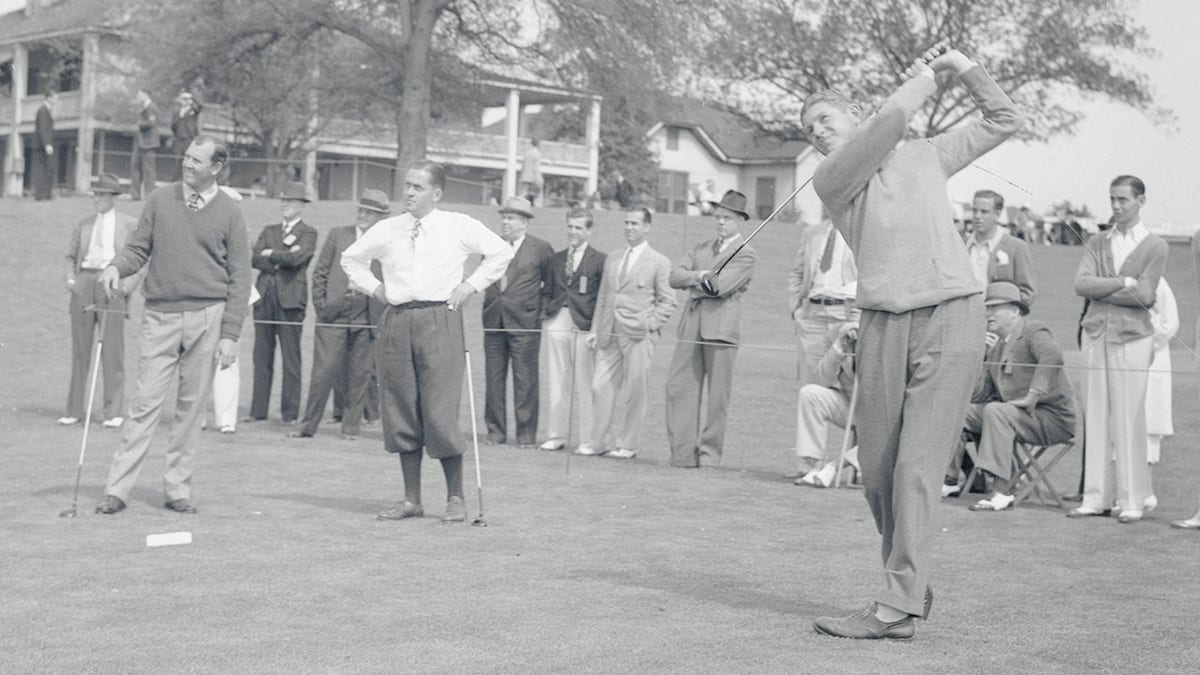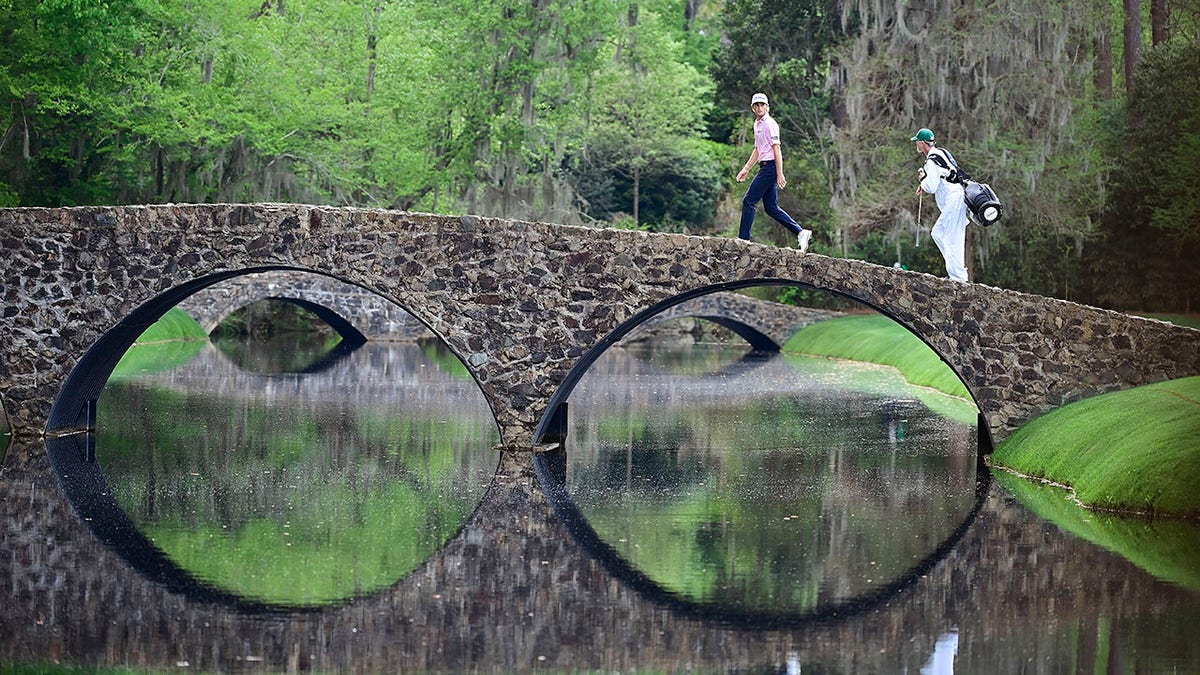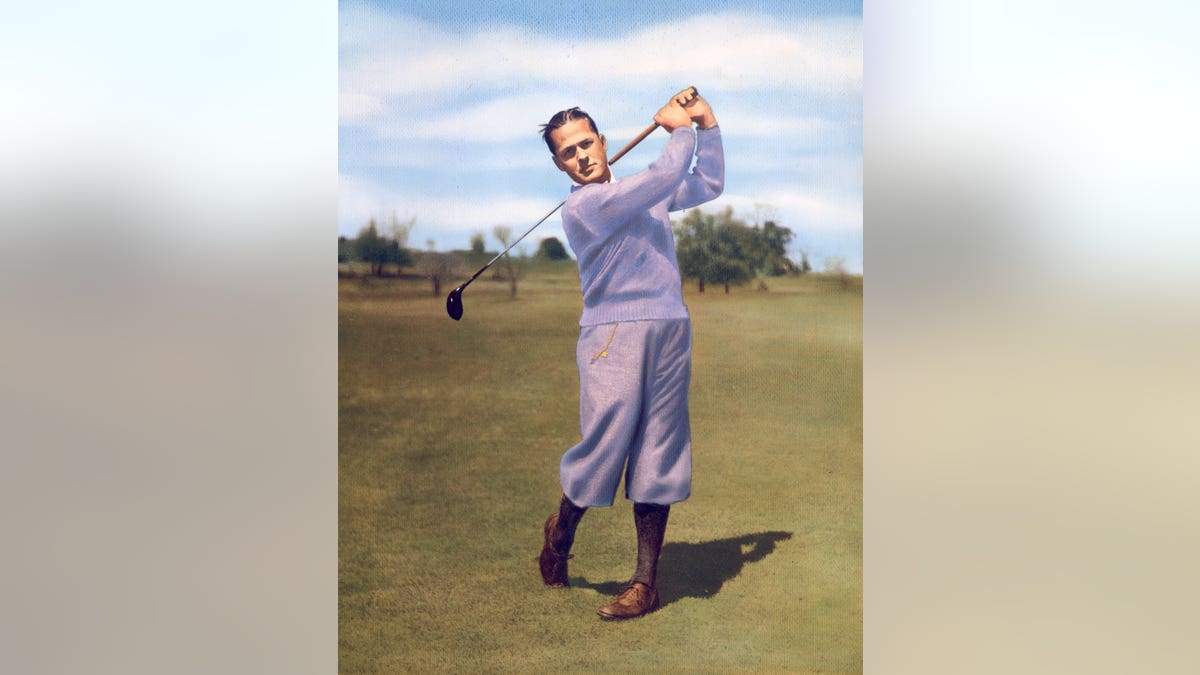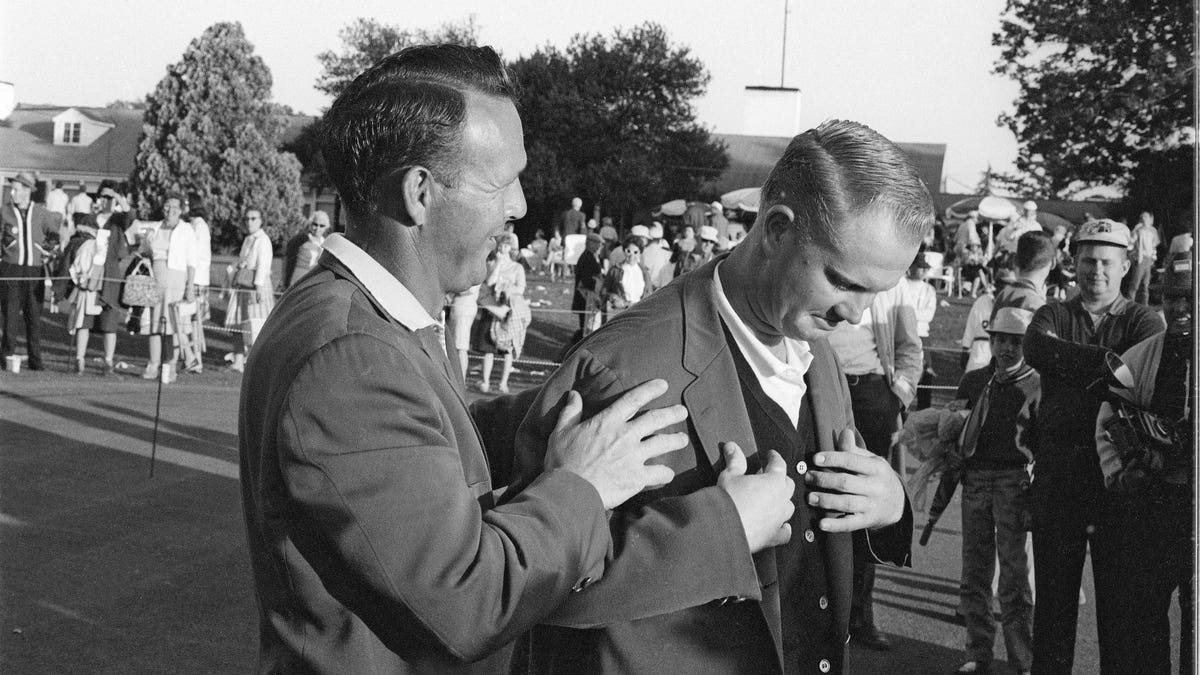The Masters Tournament teed off for the first time on this day in history, March 22, 1934
The Masters Tournament is an international sports tradition held each spring at Augusta National Golf Club in Georgia, which is famed for its stunning scenery and legendary performances by golf’s greatest players.
The Augusta National Invitation Tournament in Georgia teed off for the first time on this day in history, March 22, 1934.
"A tradition unlike any other," in the now-famous words of CBS broadcaster Jim Nantz, the golf competition was renamed the Masters Tournament in 1939 and moved to the first full week of April in 1948.
Ralph Stonehouse, fueled by a January victory in the 1934 Miami Open, did the honors of driving the very first ball in the new tournament at 9:45 a.m.
The first hole at Augusta National in 1934 is the 10th hole today, several golf sources point out.
Golf legend Horton Smith won the inaugural Masters; he earned his second title in 1936.
The Missouri native was inducted into the World Golf Hall of Fame in 1990.
His 1934 victory at Augusta marked the start of a what's become a cherished annual springtime ritual in the United States — an event in which the world's best golfers vie for glory amid one of the most spectacular settings in all of sports.

Preparing for the Masters Golf Tournament in Augusta, Georgia: Horton Smith drives the ball for good distance during a practice round on the Augusta National Golf Club course, where he would participate in the Masters Tournament starting April 2. Bobby Jones is shown at left center. Smith won the first Masters in 1934. (Getty Images)
The course is as much a part of the allure of the Masters as the competition itself.
The lush greenery dappled with spring flowers sparkles on television to the envy of viewers each April watching from still gray, chilly northern cities.
"Augusta National Golf Club’s fairways and tees are the greenest. The blooms on the dogwoods and azaleas are the brightest and prettiest," local newspaper Augusta Chronicle boasted before the 2022 tournament.
"Augusta National Golf Club’s fairways and tees are the greenest. The blooms on the dogwoods and azaleas are the brightest and prettiest." — Augusta Chronicle
"And the ponds that guard some of the most famous holes in golf are picture-book shades of blue."
The course’s bodies of water, Rae’s Creek most notably, are crisscrossed by a trio of fieldstone footbridges, each among the most iconic landmarks in global golf.

Will Zalatoris walks over the Hogan Bridge on No. 12 during the final round of the Masters at Augusta National Golf Club, on Sunday, April 11, 2021. (Augusta National via Getty Images)
Augusta National was the brainchild of amateur golf legend Bobby Jones, an icon of the sport who made his living as an Atlanta attorney, and business partner, Clifford Roberts.
They purchased Fruitlands Nurseries, a 365-acre farm in Augusta, in 1931 for $70,000. They enlisted famed British course designer Dr. Alister MacKenzie to bring it to life as a field of competition.
FISHERMAN FINDS PHOTOS ON STRANGER'S LOST CAMERA AFTER IT SAT 13 YEARS IN WATER
"Construction on the new course began in the first half of 1931 and the course opened in December 1932 with a limited amount of member play," reports Masters.com, the website of Augusta National.
"Formal opening took place in January 1933."
Famed sportswriter Grantland Rice led a high-profile contingent of golf enthusiasts by train from New York City to Augusta in January for the opening celebration.

A painting from the 1930s of Bobby Jones, founder of the Augusta National Golf Club. (Augusta National/Getty Images)
The spectacular verdant tableau has witnessed some of the great moments in sports history.
Whippet-thin youngster Tiger Woods, just 21 at the time, exploded onto the international sports scene in 1997, destroying the Masters field by a tournament record 12 strokes, and then-record -18 under par.
He marched triumphantly down the 18th fairway on final-round Sunday as throngs followed him, a public coronation of the game's next great player.
"Never in the history of the Masters did the ground shake, cheers reverberate and emotions explode as they did for Jack Nicklaus in 1986." — Links Magazine
Consumer Reports says these are the best car insurance companies / Tesla explains how to drag race the Model S after the Dodge Demon destroyed it at the strip
Several sources cite Nicklaus's victory in the Masters in 1986, his record sixth Masters title, as the greatest moment in tourney history.

Tiger Woods, 21, makes his triumphant march to the 18th green to cap his 12-stroke win at the 1997 Masters Tournament. It was Woods' first major title — and made him a global sensation. (Augusta National/Getty Images)
The Golden Bear sunk a spectacular 18-foot putt on the 17th hole of the final round and held on to win by one stroke.
CLICK HERE TO SIGN UP FOR OUR LIFESTYLE NEWSLETTER
"Never in the history of the Masters did the ground shake, cheers reverberate and emotions explode as they did for Jack Nicklaus in 1986," enthused U.K. golf outlet Links Magazine.
Horton Smith, the winner of the first and third Masters Tournaments, never wore a green jacket. The tradition of handing the newly crowned champion of Augusta National the emerald blazer began following Sam Sneed's victory in 1949.

Tiger Woods celebrates on the 18th green after winning the Masters at Augusta National Golf Club on April 14, 2019, in Augusta, Georgia. (Andrew Redington/Getty Images)
Despite its glorious history, rich layers of tradition and unmatched beauty among sporting spectacles, Augusta has suffered haunting tragedy.
Course designer MacKenzie suffered a heart attack and dropped dead in early January 1934.
The 63-year-old British war veteran was distraught, broke and begging for money, which he said Jones and Roberts owed him, according to U.K. outlet Todays-Golfer.com.

Arnold Palmer, left, helping victorious Jack Nicklaus with his green blazer at Augusta National Golf Course, Augusta, Georgia, April 7, 1963. (James Drake /Sports Illustrated via Getty Images)
Course co-founder Roberts killed himself at Augusta National on Sept. 29, 1977.
"A very sick old man put a pistol to his head and concluded his life at the edge of Ike’s Pond on the Par-3 Course of the Augusta National Golf Club," writes Golf Digest.
CLICK HERE TO GET THE FOX NEWS APP
"The deceased was Clifford Roberts … whose twin legacies were the Masters Tournament and the property where he chose to die."
For more Lifestyle articles, visit www.foxnews.com/lifestyle.










































